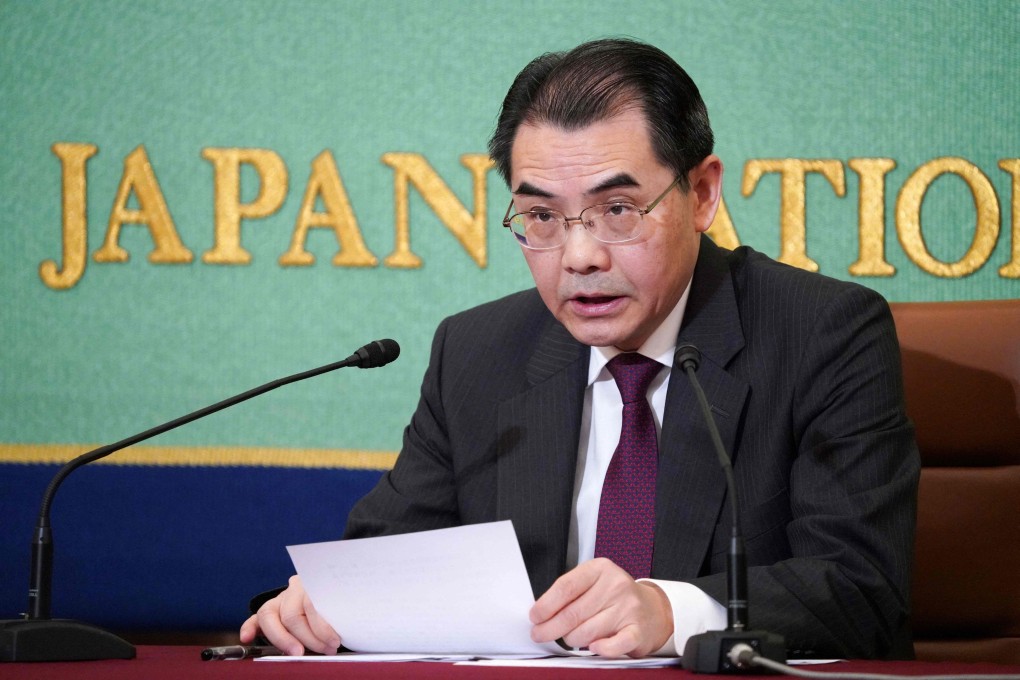Advertisement
US will be ‘sole winner’ if Japan copies chip curbs on China, Beijing’s envoy to Tokyo warns
- Japan would risk the future of its semiconductor sector if it cut off the huge China market, Chinese ambassador Wu Jianghao says
- ‘US factor has become the largest external challenge’ for the stable development of China-Japan ties, Wu tells trade body event in Tokyo
Reading Time:3 minutes
Why you can trust SCMP
21

Japan will be the loser alongside China if it continues to follow Washington’s lead in curbing semiconductor exports, leaving the US as the “sole winner”, Beijing’s top envoy to Tokyo has warned.
Calling on Japan to act rationally, Chinese ambassador Wu Jianghao said Tokyo risked sacrificing its business reputation and the future of its semiconductor industry by such moves, as it would lose the huge Chinese market – the No 1 destination for Japanese chip exports.
“The United States’ objective is to reestablish its dominance in the semiconductor sector. If [Japan] follows the path designed by the US, there will only be one result: a ‘lose-lose’ situation for both China and Japan, with the US emerging as the sole winner,” Wu told the Japan Association for the Promotion of International Trade (JAPIT) in Tokyo.
Advertisement
“It is hoped that Japan can clearly see the situation, make rational decisions, work together with China to … maintain open and smooth production and supply chains,” he added.
Wu’s speech comes at a time of widening geopolitical rifts between the two Asian neighbours, as concerns over China’s rising military power make Tokyo lean closer to Washington, and Beijing tries to break a US-led multinational squeeze on its access to chip know-how amid an intensifying tech rivalry.
Wu comments on Friday came about a week after the Japanese government unveiled its updated list of “regulated exports”, requiring local companies to get a licence for 23 types of shipments, including advanced chip-making equipment.
Advertisement
Select Voice
Select Speed
1.00x
